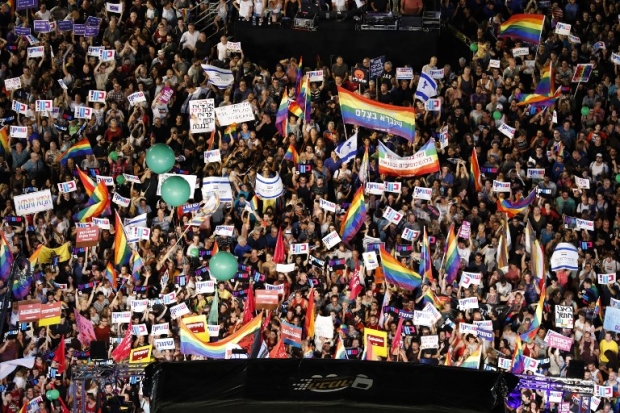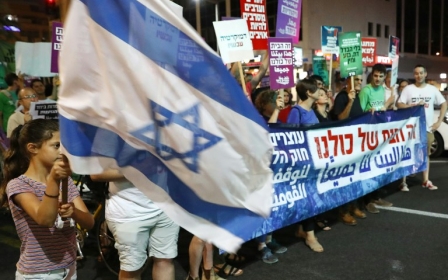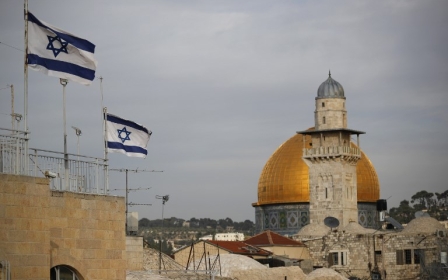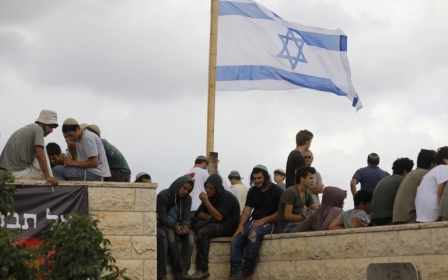Israel, where is your outrage at the legalisation of apartheid?
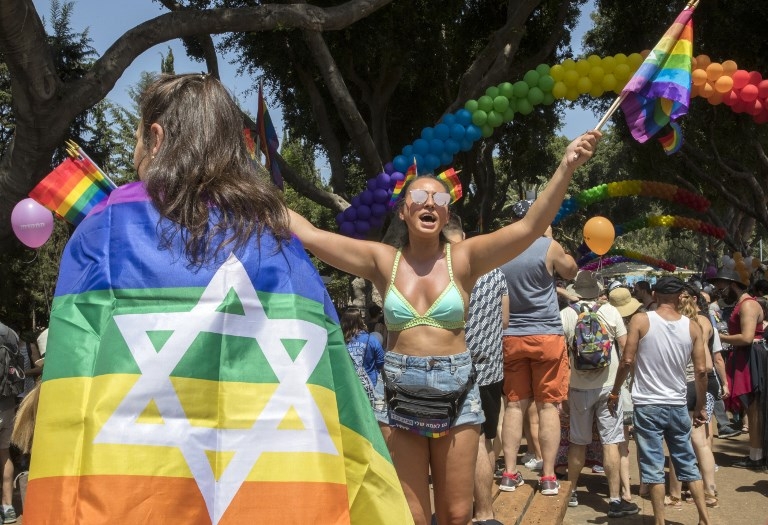
About 80,000 people, mostly young, crowded into Rabin Square on Saturday night. Tel Aviv’s biggest square had not seen a gathering this large in a long time; certainly nothing intended as a protest demonstration.
It capped a day of protests, during which thousands marched in the streets. Main thoroughfares were briefly blocked, and many people went on strike - mostly with the blessing of their employers, including some of the country’s largest companies. After years without any widespread public protest near this scale on any issue, Israeli society showed signs of awakening from its deep slumber.
The more than 160 unarmed Palestinians who have been killed alongside the Gaza fence; the cruel siege of the Gaza Strip; the intensifying discrimination against Arabs in Israel; the challenges faced by disabled Israelis, African asylum seekers and workers from shuttered Israeli factories - none of these issues has been able to evoke even a fraction of the protests that swept through Israel this past weekend. Not even close.
Progress for LGBT community
So who managed to rouse Israel from its lethargy of indifference? The LGBT community. Israelis took to the streets, for the first time in years, after the surrogacy law just passed by the Knesset did not include support for surrogacy for gay couples (or single men). That provoked a furore, and it is continuing.
The LGBT community in this country has come a long way in recent years, becoming one of the more well-connected, trendy and empowered groups. Its progress is the result of a protracted effort, and its achievements are cause for pride.
But more remains to be done. Gays, lesbians and transgender people in Israel are still discriminated against, and are far from enjoying full equality. They cannot marry in their own country, and are still subject to ridicule in certain circles of society. But the distance they have travelled to reach their present position of power, to become part of the Israeli consensus, is impressive.
There’s something suspicious about this corporate scramble to offer solidarity. What exactly were these companies seeking with this protest? Justice? Equality? That’s a laugh
Dozens of prominent corporations allowed their workers to strike on Sunday. They buttressed that step with supportive PR from highly paid professionals. They have not done likewise for the disabled, or for the asylum seekers, and certainly not for the Palestinians under occupation. They knew that to go along with the LGBT community was a sure thing; equal rights for LGBT Israelis are part of the consensus now. Support for the LGBT community in Israel is the best way to mollify one’s conscience.
There’s something suspicious about this corporate scramble to offer solidarity. What exactly were these companies seeking with this protest? Justice? Equality? That’s a laugh. Are they now going to allow their workers to demonstrate and go out on strike for other causes, every worker following his or her heart? Even funnier.
These are, however, petty questions. The LGBT community has succeeded in engaging the economic sector in its struggle; kudos to the power of their campaigning.
Israel’s comfort zone
What remains very crucially on the agenda is the order of priorities for Israeli society, its social and moral compass, its collective conscience. Israel went on strike over an issue that in objective terms is not among the most urgently deserving of protest here - surrogacy - for a group that does not top the list of the country’s disenfranchised, oppressed and discriminated against: the LGBT community.
The truth is that today, there are few other groups as powerful and well-connected as the LGBT community. This group’s relative success says nothing about its duty to continue the struggle for its rights, nor about the justice of its path.
But the strike says everything about Israeli society, which has chosen once again to flee to its comfort zone, where no price is paid for protest, always within the realm of the allowed and the accepted - where it’s only about Israel feeling good about itself, embellishing its image, and, mainly, cleansing the layers of grime soiling its conscience due to its other crimes and maladies.
Israel ought to have gone on strike, with the support of the nation’s leading corporations, against the nation-state law that was approved last week in the Knesset. They should have gone on strike in solidarity with the Arab residents of this country after the Knesset spat in their faces while delivering official, legislative notice: you are second-class citizens here.
What deep healing, what an infusion of hope, would have been produced by a strike of that scope, in sympathy with Sakhnin and Nazareth, Umm el-Fahm and Taibeh, and as a mark of solidarity with all the Arab citizens of Israel for whom the nation-state law was a punch to the gut.
What an atmosphere of fellowship could have ensued; what precious fruit harvested for the entire society by a demonstration of solidarity along those lines. But that would require a measure of courage and a clear moral compass - two things as lacking among the country’s leading companies as across Israeli society as a whole.
Brainwashed and hate-filled
No one any longer expects Israel to stage mass protests against the occupation, the siege or the settlements in the territories: nearly everyone in Israel is too brainwashed, hate-filled and anxiety-ridden to do that.
But the nation-state law, passed within a few hours of the surrogacy law, is by far the more crucial, fateful, outrageous, discriminatory and exclusionary. It doesn’t legislate a burden on parenting. It legislates a burden on belonging to your own country. It is, for certain Israelis, a signpost that marks their exit from belonging here. It signals to all Israelis that from now on, they are living in an apartheid state - not only in practice, but in law, too.
The direction of this trend is also different. The LGBT community is on the road to success. Another demonstration, another election, and surrogacy - that problematic path to parenthood sometimes viewed with more revulsion than prostitution - will be approved for men, too.
The legislation against Arabs moves us in precisely the opposite direction. The nation-state law is only the promo for what’s coming. There is a clear slippery slope ahead, with nothing to stop the decline. A mass protest now might have signalled a change and stopped the avalanche.
The nation-state law, however, was of interest to relatively few Israelis, and brought even fewer out into the streets, although it ought to have touched the conscience of every Israeli - Jewish or Arab - who cares about the kind of country they live in, the kind of regime they are living under.
The nation-state law marked out the path Israel is treading, defining in words, in law, what was known already: Israel is an apartheid state, from now on not just in the occupied territories, but in the entire country between the Jordan River and the Mediterranean Sea.
Escapist protest
This fact has not outraged most Israelis, neither its corporate leaders nor its citizens. Deep in their hearts, perhaps, they know what their country is descending towards, but haven’t the guts required to stand up to the galloping herd that supports this extreme right-wing government.
Maybe that’s why these companies so boisterously supported the right of gays to surrogacy. Maybe they thought that if they joined this relatively more marginal struggle, their conscience would some day trouble them less. Or maybe they hoped to cleanse the stain of their really big crimes. But that is an illusion, of course.
The incredible Israeli escapism, denial and repression are visible everywhere: in the apathy about the occupation, the ignorance, the lies people tell themselves, and the indifference to what is happening - and now in the protesting, too.
The incredible Israeli escapism, denial and repression are visible everywhere: in the apathy about the occupation, the ignorance, the lies people tell themselves, and the indifference to what is happening
This is a new and fascinating phenomenon: escapist protest. That’s what happened this week in Israel. Just imagine what we would have thought if the whites in South Africa during the era of apartheid had taken to the streets to advocate for men’s right to become parents through surrogacy, while the black population continued to endure under an evil regime. That’s just what happened in Israel this week.
The real oppressed can wait. Israel is marching in the pride parade.
- Gideon Levy is a Haaretz columnist and a member of the newspaper's editorial board. Levy joined Haaretz in 1982, and spent four years as the newspaper's deputy editor. He was awarded the 2015 Olof Palme human rights prize and was the recipient of the Euro-Med Journalist Prize for 2008; the Leipzig Freedom Prize in 2001; the Israeli Journalists’ Union Prize in 1997; and The Association of Human Rights in Israel Award for 1996. His book, The Punishment of Gaza, was published by Verso in 2010.
The views expressed in this article belong to the author and do not necessarily reflect the editorial policy of Middle East Eye.
Photo: Pro-LGBT participants take part in a demonstration in Tel Aviv on 22 July 2018 (AFP)
This article is available in French on Middle East Eye French edition.
New MEE newsletter: Jerusalem Dispatch
Sign up to get the latest insights and analysis on Israel-Palestine, alongside Turkey Unpacked and other MEE newsletters
Middle East Eye delivers independent and unrivalled coverage and analysis of the Middle East, North Africa and beyond. To learn more about republishing this content and the associated fees, please fill out this form. More about MEE can be found here.



